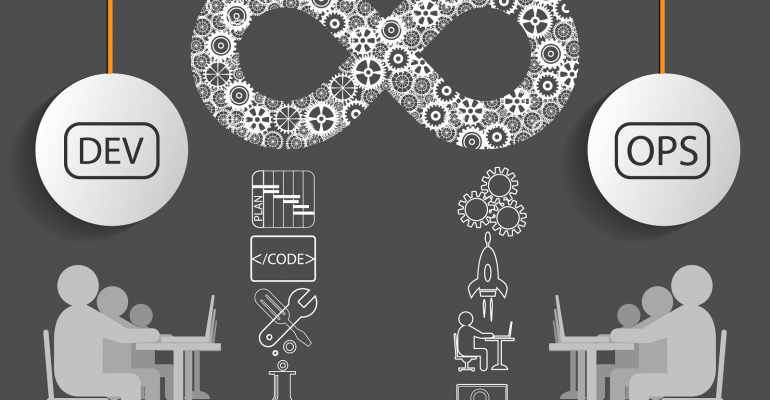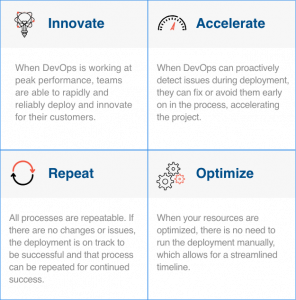DevOps: A Look Inside the Complex World of Development & Operations

DevOps: A Look Inside the Complex World of Development & Operations
A Genesys implementation is a big undertaking and relies heavily on a technical team (internal or outsourced) to build the foundation for customer service operations and customer experience. Because of this, it is imperative to have a talented team to execute and manage the implementation.
That’s where the DevOps team comes in. “DevOps” is a term you’ve surely heard several times in the technology world – the group responsible for software development (Dev) and information technology operations (Ops). However, there is often confusion surrounding these components of the technical team and how they should interact with each other. Or, even worse, a conflict between the departments.
The Misconception of DevOps
Historically, development and operations teams were often viewed as separate departments, roles, and responsibilities within technology organizations. The development team working solely on the software side of things, while operations managed the usage of the software within the company.
This caused a lot of problems and frustrations over the walls of separation and lack of cohesion between application and infrastructure methods, sometimes causing blame on the opposing team for any issues or delays throughout the process.
Eventually, when it was realized that the development and operations teams should really be working together, they were conjoined into the well-known term across the technology world as “DevOps.” But there are still some qualms about the silos of DevOps and how to effectively collaborate to become proficient at the streamlined implementation process internally.
The Perfect Balance
For today’s fast-paced and quickly advancing technology companies, it is imperative that the two teams comprising DevOps work together, but also focus on their respective core roles and responsibilities with the same goal in mind – to streamline the software development timeline while delivering features, fixes, and updates that are aligned with the overall business objectives and company vision.
When your DevOps team is working in union, you will be able to be more productive and efficient.

Genesys Requires DevOps Expertise
When it comes to Genesys, it is such a flexible platform that if you’re not careful, the amount of customization that is possible could send you down a complex path of problems. That’s why DevOps expertise is Essential! You’ll want to ensure that your customizations are relevant, crisp and within the scope for your project, as well as make sure your system is protected when customizing.
The Operations
We find it helps to begin the project with an operational view, then determine how the development of the system can implement the vision. The Operations team’s core role is understanding how to use the software within the organization’s processes and how to make operations more productive. Once this is determined, the Operations team will also need to create a plan for employee training, ensuring the team has the range of skills necessary to utilize the software to maximum capacity.
The Development
The Development team’s core role is not only to ensure the Genesys system is installed properly but to understand all of the technical ins and outs of the platform. Once Genesys is installed, the development team is responsible for continued improvements, extending the platform functionality through third-party integrations, fixes, and solutions for bugs, and recovery from any more serious problems. The development process involves implementations and improvements or fixes, and also requires vigorous testing of all feature sets and functions.
The Tools
In order to make the Genesys implementation process easier for the DevOps team, there are an array of tools designed to help manage, monitor and collaborate during the project.
Using Change Configuration Management tools like the Blackchair, allows DevOps teams to track changes that have been made to the system so the whole team is always aware of things like what changes were made, when they were made (date/time stamps), and who tested, implemented, and authorized the changes. You can even use a “rollback” feature to revert back to a previous version of the system if a change is made that doesn’t work out as planned.
Another helpful tool might be a Customer Experience (CX) Testing platform, like Cyara. Tools like this test your platform from multiple angles for CX assurance, including quality testing, performance testing, and monitoring of any issues. The user experience is tested automatically at the time of deployment, so DevOps teams can improve your system in real-time.
Miratech’s Unmatched DevOps Expertise
Miratech has not only mastered DevOps, but we have also built the methods and tools used to streamline the implementation process. That, combined with the partnerships we’ve formed with other key players in Genesys implementation, guarantee the success of your platform and its operations.
Whether you have an in-house DevOps team or no in-house capabilities at all, we can work with you to ensure the success of your Genesys implementation, delivering it on-time and within budget – guaranteed.
